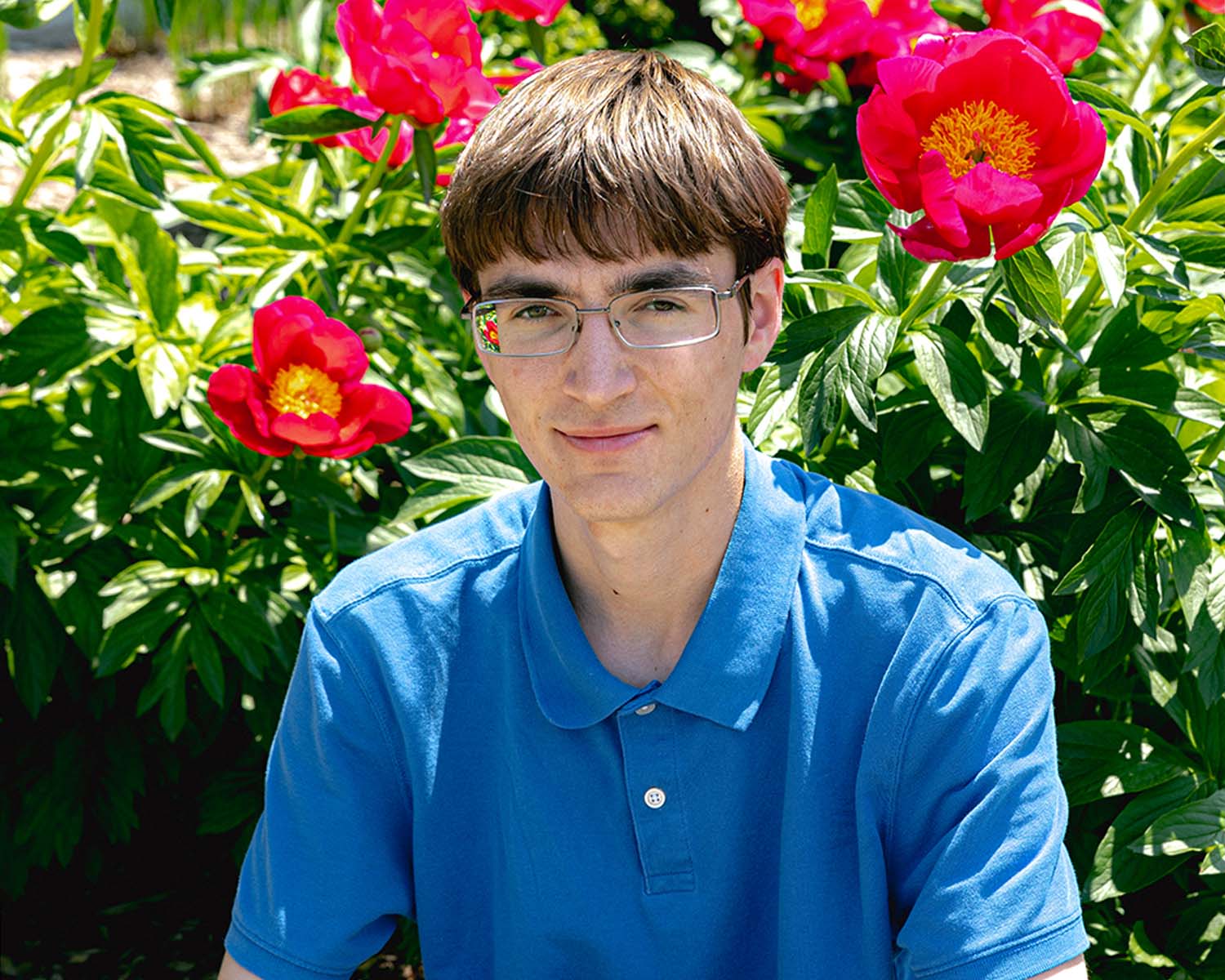Chemistry for the greater good
Author: Paula Van Brocklin
Author: Paula Van Brocklin
 Daniel Howell (’24 chemistry) always knew he wanted to be a scientist. But with so many scientific avenues to pursue, how would he choose? The answer became clear in high school.
Daniel Howell (’24 chemistry) always knew he wanted to be a scientist. But with so many scientific avenues to pursue, how would he choose? The answer became clear in high school.
“When I took chemistry sophomore year of high school, everything just made sense. I really liked it. I’ve always been interested in what things are made of,” Howell said.
Howell didn’t have to look far for a top-notch undergraduate chemistry program. Located only about an hour from his hometown of Cumming, Howell enrolled at Iowa State in the fall of 2020 as a chemistry major.
Researching opportunities
Once on campus, Howell wasted no time digging into the numerous research opportunities Iowa State offers. As a freshman, he participated in the First-Year Honors Mentor Program, where he paired up with Professor of Chemistry Wenyu Huang. Early in his college career, he also received a College of Liberal Arts and Sciences Dean’s High-Impact Award for Undergraduate Research. Then, in 2023, Howell received a prestigious Goldwater Scholarship.
Of the research he conducted on campus, Howell was most impacted by his work with the Institute for Cooperative Upcycling of Plastics (iCOUP), a Department of Energy research center that comprises numerous institutions across the nation, including Ames National Laboratory. iCOUP’s goal is to uncover new ways to upcycle plastics. To that end, Howell’s undergraduate research focused on developing a new catalyst that can upcycle the most common class of plastics – polyolefins – into things like motor oils, diesel fuels, and jet fuels.
“My project was to develop a new catalyst that might have enhanced properties compared to the older designs,” Howell said. “Many of the older catalysts were precisely controlled architectures made of silica, the main ingredient in sand. Although silica has high mechanical and thermal stability, its chemical reactivity is low. For this new catalyst, I wanted to incorporate titania, a material that is more reactive than silica.”
The project helped Howell narrow the focus of his future chemistry career.
“Intellectually, I’d be happy doing any kind of chemistry, but that doesn’t help you choose a career path. That doesn’t help you choose what kind of impact you want to have on the world so that’s what I think really attracted me to plastic upcycling,” Howell said. “I’ve always had that goal, too, to help the environment. I forget who said this, but it was something like when you die, be ashamed until you’ve scored some victory for humanity. That resonates with me.”
Howell accomplished much of what he set out to achieve with the iCOUP project, though he ran out of time to see it finished, thanks to graduation from Iowa State. So, in addition to conducting groundbreaking chemical research his final semester at Iowa State, Howell also trained a first-year undergraduate to take his spot in the project, a job he took very seriously.
“Because I like chemistry so much, if I can get other people to like chemistry and understand it, then that’s really rewarding for me,” Howell said. “There’s a practical side of [the training] as well; she’s got to take over this project and be good at it and know her stuff, so that way the project can continue to progress while I’m not here.”
The journey ahead
Howell’s undergraduate research at Iowa State has prepared him well for the next step in his academic journey. Beginning this fall, he will pursue a Ph.D. in chemistry at Stanford University. He intends to build upon what he started at Iowa State and develop new chemical technologies.
“Ultimately, I want a career in scientific research, whether that be in industry, academia, or government,” Howell said. “To put my desired impact into one sentence, I want to develop chemical technologies that help create a circular economy.”